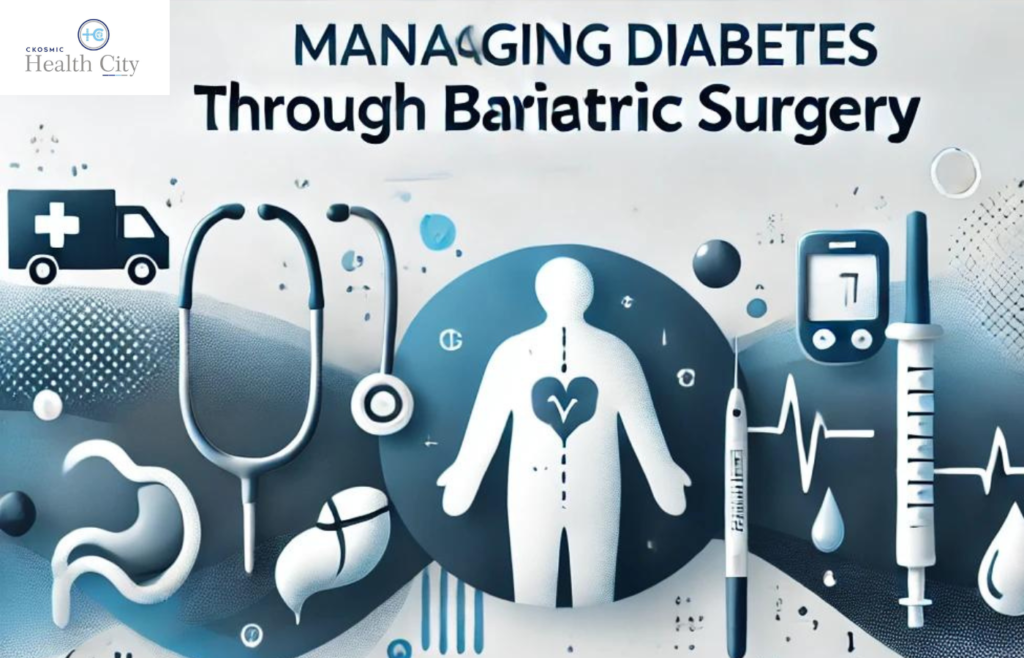
Diabetes, particularly Type 2, is a chronic condition that affects millions of people worldwide. Traditional methods of managing diabetes typically involve lifestyle changes, medication, and sometimes insulin therapy. However, for individuals struggling with obesity, managing diabetes can be even more challenging. Bariatric surgery has emerged as an effective option for not only weight loss but also for the improvement and even remission of Type 2 diabetes.
Understanding the Link Between Obesity and Diabetes
Obesity is a significant risk factor for developing Type 2 diabetes. Excess fat, especially around the abdomen, can lead to insulin resistance – a condition where the body’s cells fail to respond to insulin effectively. This resistance forces the pancreas to produce more insulin, eventually leading to its failure and the onset of diabetes. Bariatric surgery can significantly reduce excess body weight, which in turn can improve the body’s insulin sensitivity and help manage diabetes more effectively.
How Bariatric Surgery Helps in Managing Diabetes
- Weight Reduction: The most direct benefit of bariatric surgery is significant weight loss, which helps reduce the fat that contributes to insulin resistance.
- Hormonal Changes: Post-surgery, hormonal changes occur that help regulate blood sugar levels. For instance, the gut hormones that play a role in insulin production are positively affected, leading to better glucose control.
- Reduced Medication Dependence: Many patients who undergo bariatric surgery find that their need for diabetes medications decreases or even disappears. This is because the surgery can improve blood sugar levels so much that diabetes is put into remission.
- Improved Quality of Life: Managing diabetes often involves strict dietary restrictions and frequent medication. Bariatric surgery can simplify diabetes management, allowing patients to enjoy a better quality of life.
Types of Bariatric Surgery for Diabetes Management
There are several types of bariatric surgery that are particularly effective in managing diabetes:
- Gastric Bypass: This procedure reduces the stomach size and reroutes the small intestine, leading to lower calorie absorption and better blood sugar control.
- Sleeve Gastrectomy: This surgery involves removing a portion of the stomach, which not only reduces hunger but also improves insulin sensitivity.
- Mini Gastric Bypass: A less invasive option, this surgery also involves creating a smaller stomach pouch and rerouting the intestines, offering similar benefits to the traditional gastric bypass.
Is Bariatric Surgery Right for You?
Bariatric surgery is typically recommended for individuals with a Body Mass Index (BMI) of 35 or higher, especially if they have obesity-related conditions like Type 2 diabetes. However, it’s important to undergo a thorough evaluation by a qualified bariatric surgeon to determine if this procedure is suitable for you.
In the End, managing diabetes through bariatric surgery is a life-changing option for those struggling with obesity and Type 2 diabetes. The procedure not only aids in significant weight loss but also offers the potential for diabetes remission, reducing the need for medications and improving overall quality of life. If you’re considering bariatric surgery as a way to manage your diabetes, it’s essential to consult with an experienced surgeon.
If you’re ready to take control of your diabetes and explore the benefits of bariatric surgery, schedule a consultation with Dr. Amit Sood, the Best Bariatric Surgeon in Punjab. With years of experience and a patient-centered approach, Dr. Amit Sood can guide you through your weight loss journey and help you achieve lasting health improvements.

